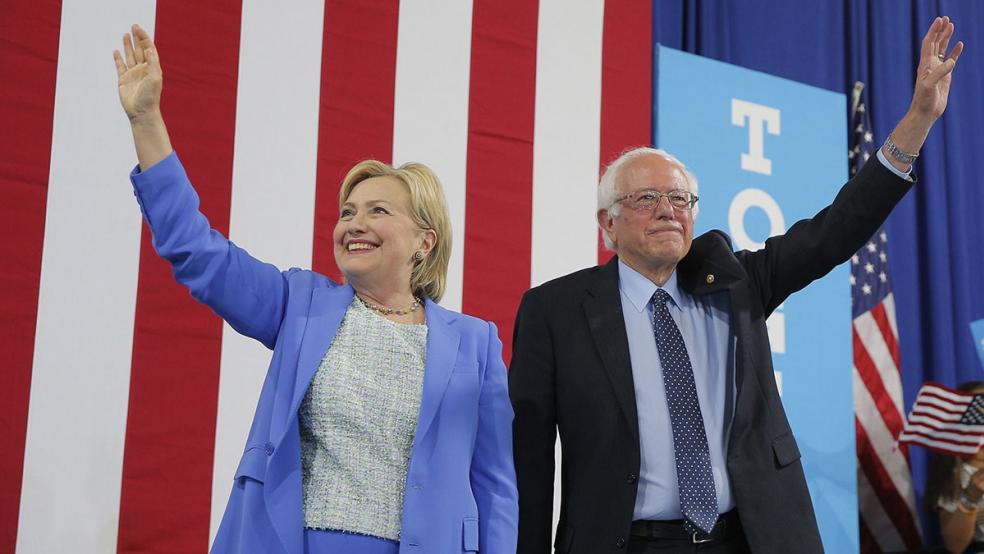As Hillary Clinton copes with a health scare that has taken her off the campaign trail for a few days, one question that worried Democrats may be asking themselves is: Where’s Bernie?
Related: Why Hillary Needs Bernie Now More Than Ever
For almost 13 months, until he was forced to concede defeat in June, Bernie Sanders, the independent senator from Vermont, mounted an insurgent and incessant challenge to Clinton’s claim on the Democratic presidential nomination.
Compared with the name-calling and outlandish insults that marked the Republican primary race, the Clinton-Sanders competition was a largely civil affair, though Sanders and his supporters have reason to be bitter. Just before the Democratic National Convention in late July, hacked emails released by WikiLeaks revealed that the Democratic National Committee under then-Chair Debbie Wasserman Schultz had been working to undermine the Sanders candidacy.
After mounting angry protests at the convention, Sanders’ supporters ultimately quieted down and the leader of their leftist revolution offered a full if somewhat forced endorsement of Clinton. In a 30-odd-minute speech, preceded by about three minutes of applause during which he seemed to get emotional, almost nine minutes went by before he even mentioned her name. And when he did, he said the election was not about himself or Hillary or Donald Trump.
In the most passionate part of his speech, he talked about the improbable movement he started. “Together, my friends, we have begun a political revolution to transform America and that revolution – our revolution – continues,” Sanders said. “Election days come and go. But the struggle of the people to create a government which represents all of us and not just the 1 percent – a government based on the principles of economic, social, racial and environmental justice – that struggle continues. And I look forward to being part of that struggle with you.”
Related: 7 Ways Bernie Sanders Transformed the 2016 Election
Then Sanders went back to Vermont to lick his wounds and create an organization, Our Revolution, that would perpetuate the movement that attracted so many Americans – many of them Millennials – disaffected from the political system.
But the organization had a shaky start marked by the resignation of key staffers, and Sanders finally put longtime aide Jeff Weaver in charge.
With that distraction behind him, Sanders was out stumping for Clinton in the battleground state of New Hampshire on Labor Day weekend. But after almost collapsing at a 9/11 memorial event in New York with what has been said to be a case of pneumonia, she clearly could use more of his help.
That was underscored by a new poll from Morning Consult Tuesday that found Sanders to be the most popular senator in the nation, with an 87 percent approval rating in his home state. His closest rival is Republican Susan Collins of Maine with 69 percent approval in her home state, and he’s 36 points ahead of Senate Majority Leader Mitch McConnell, Republican of Kentucky.
In an interview with Charlie Rose that aired today on CBS This Morning, Bill Clinton almost seemed to be reaching out to Sanders when he put a complimentary spin on what was at times a bare-knuckle fight with his wife. “Bernie Sanders, I think, was a much more positive populist," Clinton said. "That is, he wanted to do things. He had an affirmative agenda. And so did Hillary, and they argued about which one’s was better.”





